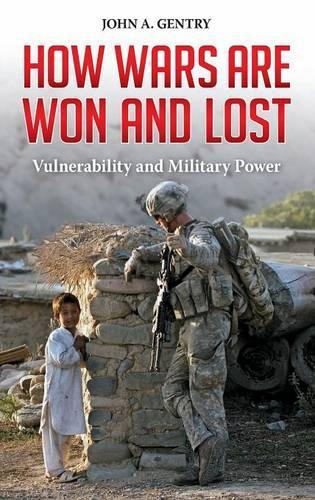
How Wars Are Won and Lost: Vulnerability and Military Power
(Hardback)
Publishing Details
How Wars Are Won and Lost: Vulnerability and Military Power
By (Author) John A. Gentry
Bloomsbury Publishing PLC
Praeger Publishers Inc
10th November 2011
United States
Classifications
Tertiary Education
Non Fiction
History of the Americas
Military and defence strategy
355.033073
Physical Properties
Hardback
328
Width 156mm, Height 235mm
595g
Description
This provocative book seeks to answer a most crucialand embarrassingquestion concerning the U.S. military: why the United States is so often stymied in military confrontations with seemingly weaker opponents, despite its "superpower" status. This fascinating book examines a question that continues to puzzle soldiers, statesmen, and scholars: why do major powersincluding the ostensible superpower United Statesrepeatedly perform poorly against seemingly overmatched adversaries And what can they, and the United States, do to better achieve their military objectives How Wars are Won and Lost: Vulnerability and Military Power argues that beyond relying solely on overwhelming military might, the United States needs to focus more on exploiting weaknesses in their adversariessuch as national will, resource mobilization, and strategic miscuesjust as opposing forces have done to gain advantage over our military efforts. The author tests the "vulnerability theory" by revisiting six conflicts from the Philippine War of 1899-1902 to the ongoing actions in Iraq and Afghanistan, showing again and again that victory often depends more on outthinking the enemy than outmuscling them.
Author Bio
John A. Gentry, PhD, is adjunct associate professor with the Security Studies Program of Georgetown University's Edmund A. Walsh School of Foreign Service.
